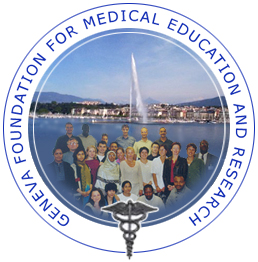Anticancer and Antibacterial Activities of Solanum aethiopicum L., Solanum macrocarpon L. and Garcinia kola Heckel
doi.org/10.26538/tjnpr/v5i5.23
Keywords:
Antimicrobial activity, Cancer, Cytotoxic, Solanum aethiopicum, Solanum macrocarpon, Garcinia kolaAbstract
Cancer and infectious diseases are among the top ten leading causes of death in developing countries. The discovery and development of newer agents for combating these global health problems cannot be overemphasized. This study was designed to investigate the activities of extracts of Solanum aethiopicum, Solanum macrocarpon and Garcinia kola on cancer and antibacterial pathogens. The Agar well diffusion method was used to evaluate antibacterial activity of the extracts. In vitro anticancer activity against cervical cancer (HeLa), breast cancer (MCF-7) and epidermoid carcinoma of the larynx (HEp-2) was done by microscopic evaluation of morphology and by determination of 50% cytotoxic concentrations (CC50). The CC50 of ethyl acetate extracts of Solanum aethiopicum and Solanum macrocarpon against MCF-7 were 38.79 µg/mL and 41.30 µg/mL respectively, and were significantly lower (p < 0.05) compared to the CC50 of the other extracts. Dichloromethane extract of Garcinia kola was significantly cytotoxic (p<0.05) on cervical cancer (CC50 = 38.13 µg/mL) compared to DCM extracts from Solanum aethiopicum and Solanum macrocarpon. The minimum concentration of methanol extracts of Solanum aethiopicum, Solanum macrocarpon and Garcinia kola that inhibited the growth of Staphylococcus aureus, Pseudomonas aeruginosa, Escherichia coli and Klebsiella pneumoniae was 1.56 mg/mL. Solanum aethiopicum, Solanum macrocarpon and Garcinia kola extracts demonstrated significant (p < 0.05) anticancer and antibacterial activities and as such are promising sources of novel plant-derived anticancer and antibacterial drugs.
References
World Health Organization. Cancer. 2018; https://www.who.int/news-room/fact-sheets/detail/cancer Accessed May 11, 2021.
Plummer M, de Martel C, Vignat J, Ferlay J, Bray F, Franceschi S. Global burden of cancers attributable to infections in 2012: a synthetic analysis. Lancet Glob Health. 2016; 4(9): e609-616.
Human Papillomavirus (HPV) and related cancers fact sheet 2018. ICO/IARC information centre on HPV and cancer 2019. www.hpvcentre.net Accessed January 04, 2021.
Cragg GM and Newman DJ. Plants as a source of anticancer agents. Ethnopharmacol. 2005; 100(1-2):72-79.
Chioma A, Obiora A, Chukwuemeka U. “Does the African garden egg offer protection against experimentally induced ulcers?”. Asian Pac J Trad Med. 2011; 4(2):163-166.
Iwu M, Duncan AR, Okunji CO. New antimicrobials of Plant origin. In: Janick J (Eds.). Perspectives on new crops and new uses, Alexandria. ASHS Press; 1999. 457-462 p.
Oluremi, B, Oloche JJ, Fasusi ET, Lawal MA. Evaluation of phytochemical constituents and antimicrobial activity of leaves and stem bark extracts of Sarcocephalus latifolius. Microbiol Res J Int. 2018; 24(2):1-10.
Senthilraja P and Kathiresan K. In vitro cytotoxicity MTT assay in Vero, HepG2 and MCF -7 cell lines study of marine Yeast. J Appl Pharm Sci. 2015; 5(03):080-084.
Eletta OAA, Orimolade BO, Oluwaniyi OO, Dosumu OO. Evaluation of proximate and antioxidant activities of Solanum aethiopicum L and Solanum macrocarpon L. J Appl Sci Environ Manag. 2017; 21(5):967-972.
Ossamulu IF, Akanya HO, Jigam AA, Egwim EC. Evaluation of nutrient and phytochemical constituents of four eggplant cultivars. Elixir Food Sci. 2014; 73(2014):26424-26428.
Liu W, Yin D, Li N, Hou X, Wang D, Li D, Liu J. Influence of environmental factors on the active substance production and antioxidant activity in Potentilla fruticosa L. and Its quality assessment. Sci Rep. 2016; 6:28591.
Ibedu CL, Ihetu CC, Okoro OS, Obeagu EI. Phytochemical composition and antimicrobial properties of Garcinia kola(Bitter kola) seed extract. Int J Curr Res Chem Pharm Sci. 2018; 5(11):8-12.
Thomas E, Gopalakrishnan V, Somasagra RR, Choudhary B, Raghavan SC. Extract of Vernonia condensata, inhibits tumor progression and improves survival of tumor-allograft bearing mouse. Sci Rep. 2016; 6:23255.
Rodriguez-Garcia C and Sanchez-Quesada C. Dietary Flavonoids as Cancer Chemopreventive Agents: An Updated review of human studies. Antioxidants. 2019;
:137.
Mondal A, Gandhi A, Fimognari C, Atanasov AG, Bishayee A. Alkaloids for cancer prevention and therapy: Current progress and future perspectives. Eur J Pharmacol. 2019; 858:172472.
Ilodibia CV, Akachukwu EE, Chukwuma MU, Igboabuchi NA, Adimonyemma RN, Okeke NF. Proximate, phytochemical and antimicrobial studies on Solanum macrocarpon L. J Adv Biol Biotechnol. 2016; 9(2):1-7.
Othman L, Sleiman A, Abdel-Massih RM. Antimicrobial activity of polyphenols and alkaloids in Middle Eastern plants. Front Microbiol. 2019; 10:911.
Published
How to Cite
Issue
Section
License

This work is licensed under a Creative Commons Attribution-NonCommercial-NoDerivatives 4.0 International License.

















